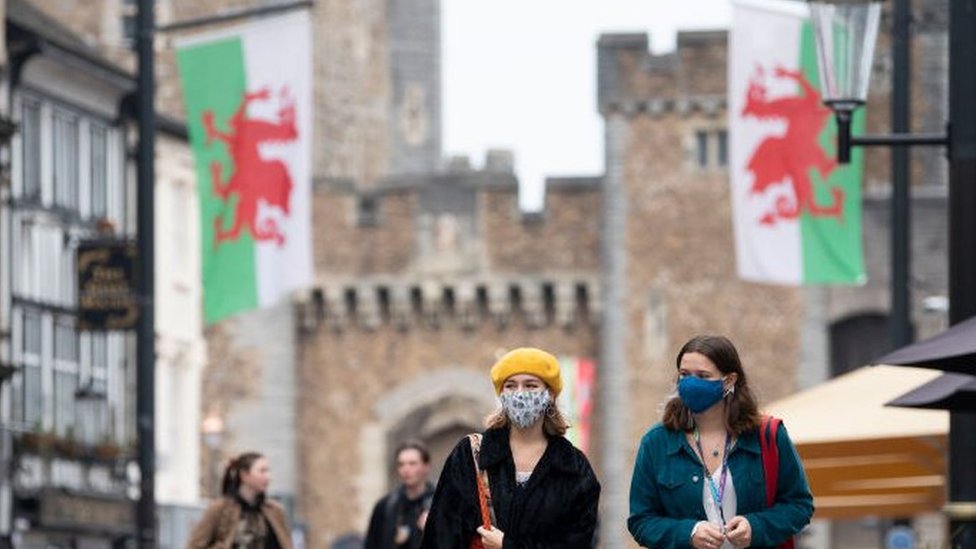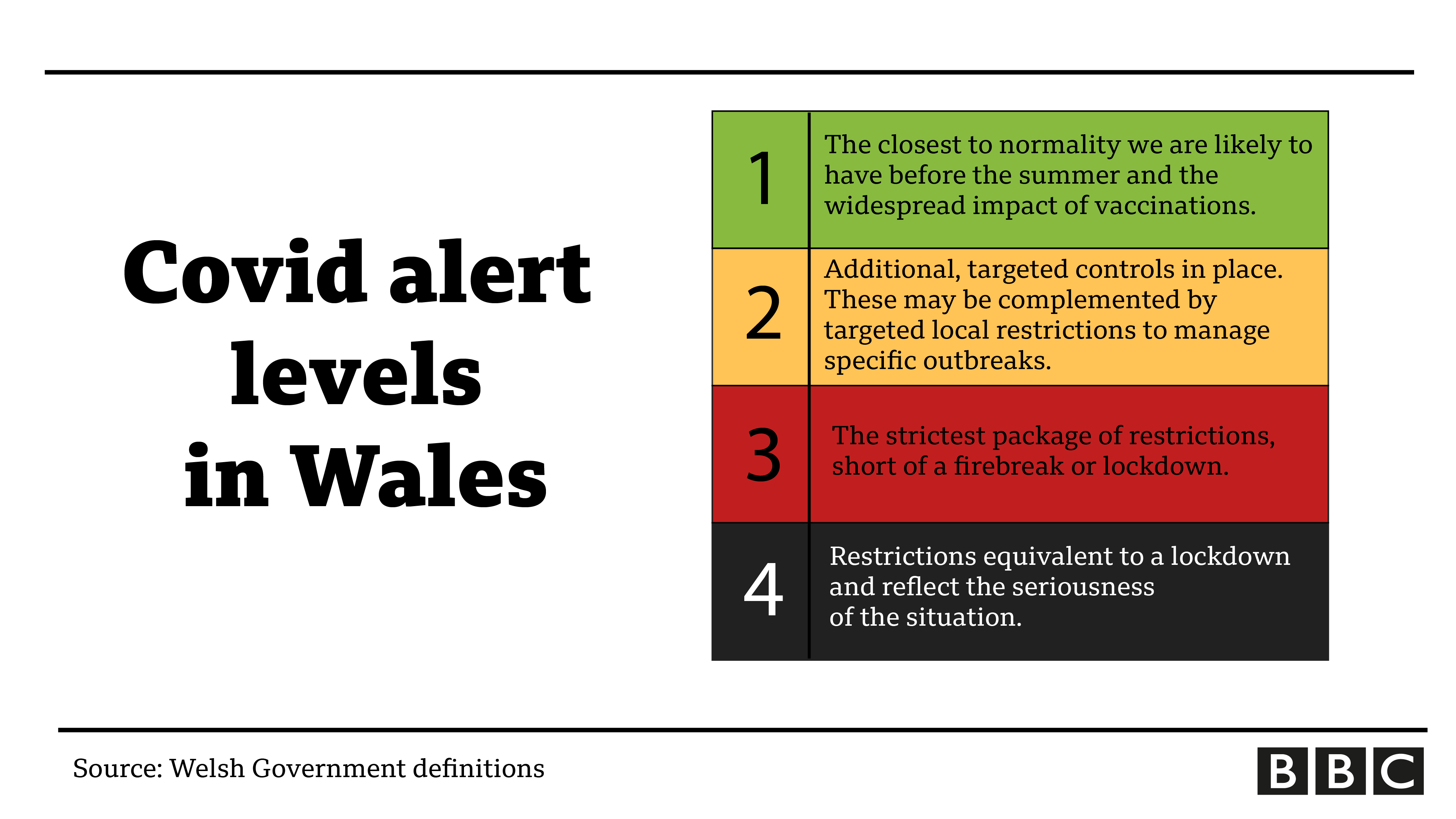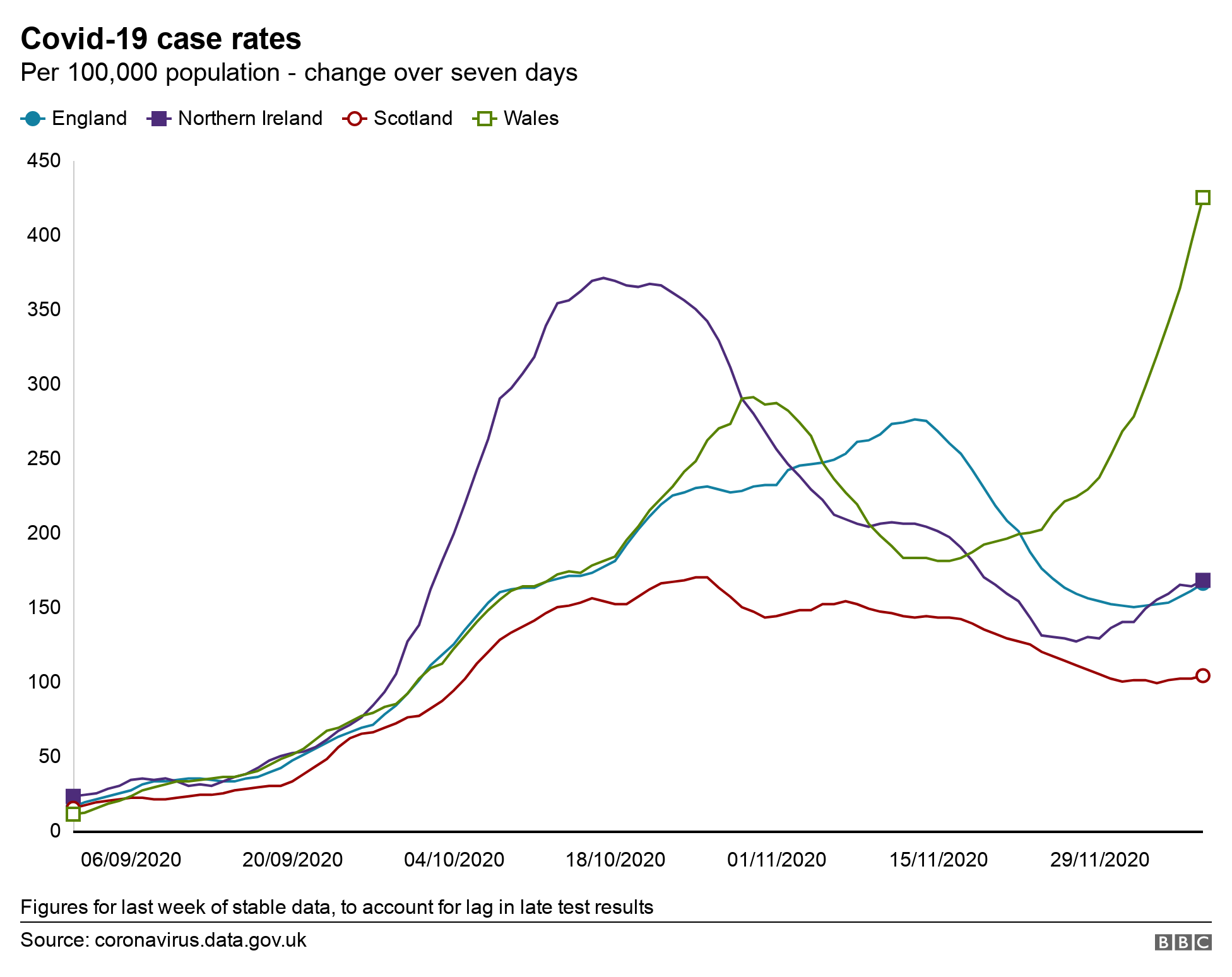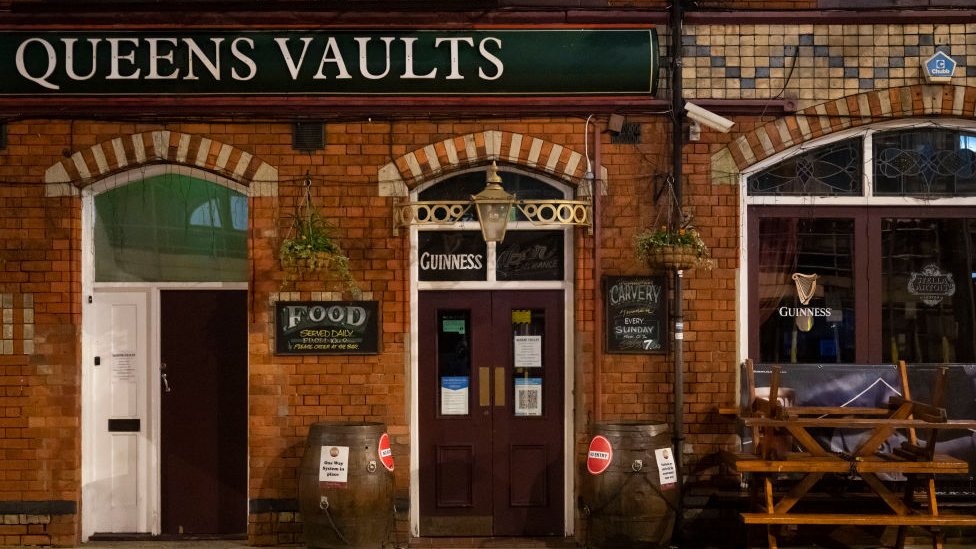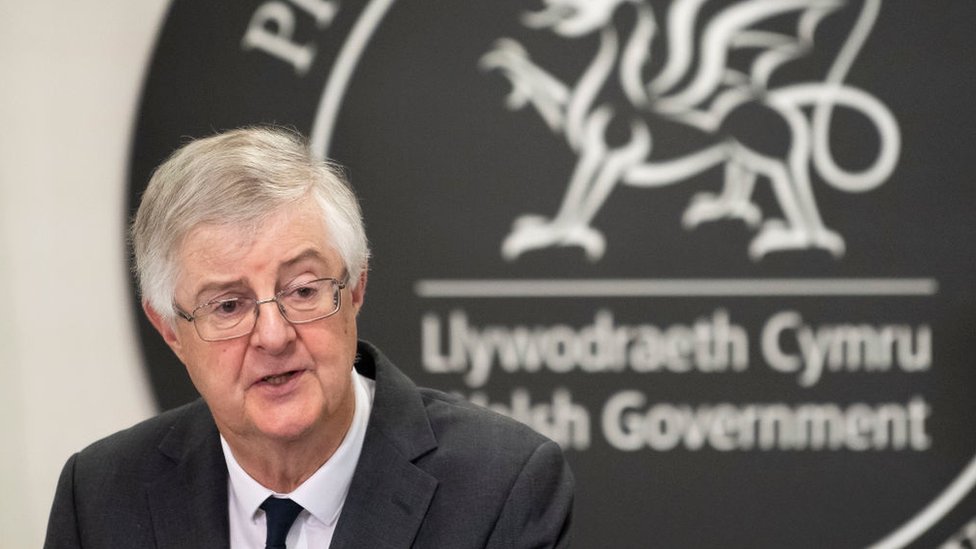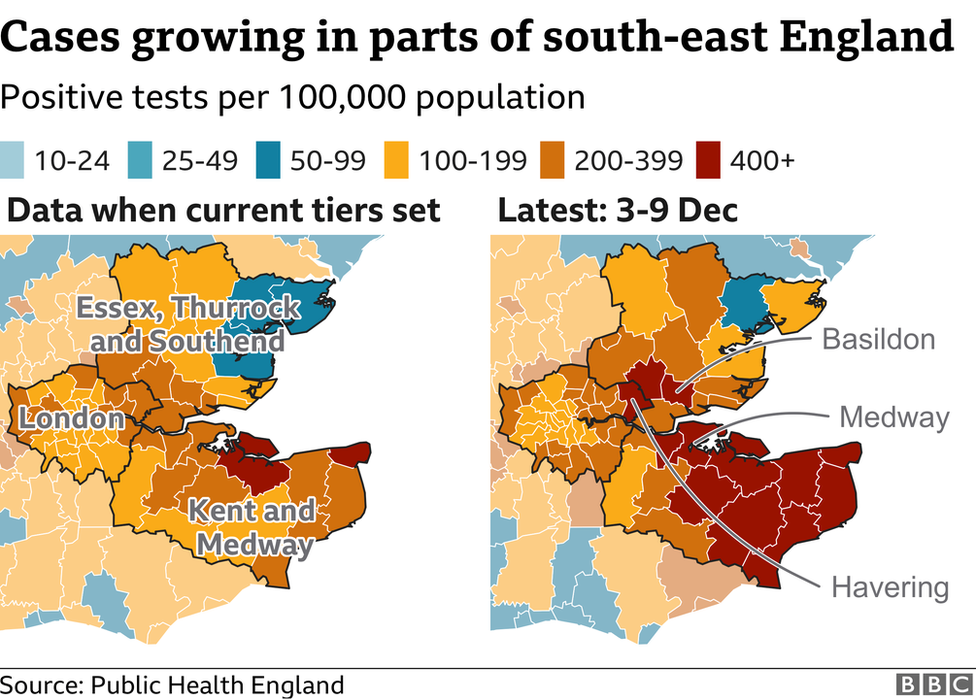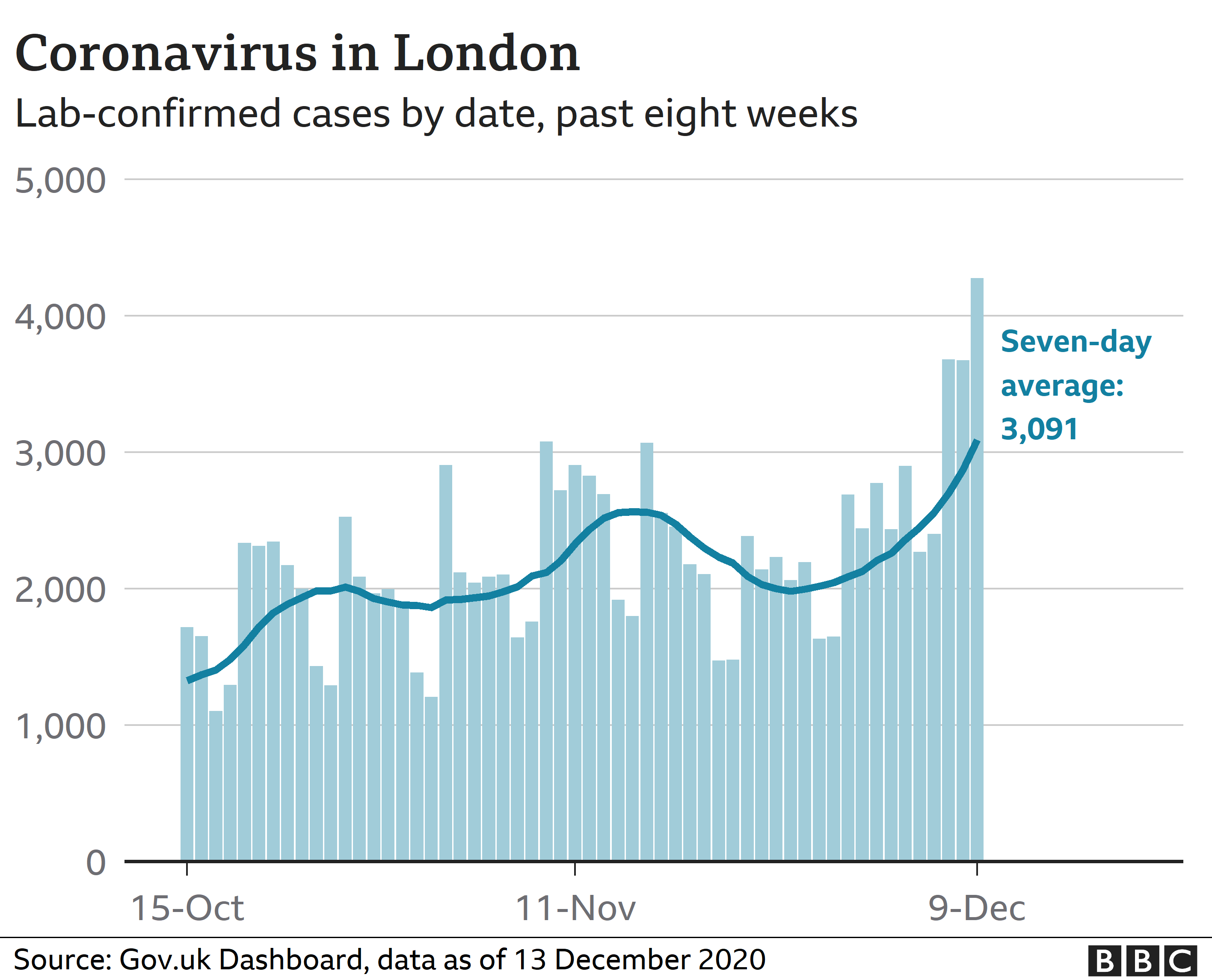
A new variant of coronavirus has been identified in the UK that could be contributing to a rapid rise in infections in some parts of the country.
Researchers were urgently investigating whether the new strain was more transmissible than previous coronavirus variants, UK health secretary Matt Hancock told the House of Commons on Monday, even as he sought to reassure members of parliament over the risks posed by the mutation.
“There is currently nothing to suggest that this variant is more likely to cause serious disease, and the latest clinical advice is that it’s highly unlikely that this mutation would fail to respond to a vaccine,” Mr Hancock said.
More than 1,000 cases with the new variant have been detected, mainly in the south of England, and the World Health Organization has been alerted.
“We do not know the extent to which this is because of the new variant,” Mr Hancock added. “But no matter its cause, we have to take swift and decisive action . . . to control this deadly disease while the vaccine is rolled out.”
Chris Whitty, England’s chief medical officer, told a press conference that London was being moved to more stringent Tier 3 restrictions because cases were surging in and around the capital — and not directly in response to the discovery of the new variant.
Although the Sars-Cov-2 virus that causes Covid-19 is always mutating, virologists said only one variant that changed the nature of infection had previously been detected. This is the so-called D614G strain that has largely replaced the original D614D virus since the early months of the pandemic because it transmits more readily between people.
Allan Wilson, who heads the Institute of Biomedical Science, told the Financial Times that he began to hear “rumblings” about the new strain on Sunday night. The key issues for scientists were whether the coronavirus tests currently used would pick up the new variety and whether someone infected with an earlier strain of the virus would have the same level of protection against the new variant.
Coronavirus tests generally register different subtypes of the virus, suggesting they would detect the new version but it might be several weeks before enough affected people had been tested to be certain of how the current tests would respond, Mr Wilson said.
Regarding whether the new variant would mean that those with immunity — either from vaccination or past infection — would no longer be protected, Mr Wilson added that it would take a “few months” to know for sure. “[We] are probably cautiously optimistic this won’t be a significant issue for us.”
Prof Alan McNally of the University of Birmingham, an expert on microbial genomics, said “huge efforts” were under way to characterise the new strain and understand its origin. “It is important to keep a calm and rational perspective on the strain, as this is normal virus evolution and we expect new variants to come and go and emerge over time.”
“It’s too early to be worried or not by this new variant, but I am in awe of the surveillance efforts in the UK that allowed this to be picked up so fast,” Prof McNally added.
Mr Hancock’s announcement annoyed some scientists working on viral genetics who were left scrambling for information about what variant he was talking about.
“It is frustrating to have claims like this made without the associated evidence presented for scientific assessment,” said Lucy van Dorp, senior research fellow in microbial genomics at University College London. “The variant remains to be officially announced.”
According to Emma Hodcroft, an expert on viral genetics at the University of Bern in Switzerland, the new strain appears to have three mutations in the spike protein that the coronavirus uses to enter human cells. Two genetic letters have been deleted and another has been changed.
Another variant called 20A.EU1 was found in October to have spread rapidly from Spanish farm workers through much of Europe. Each variant has its own genetic signature and can be traced back to the place it originated.
The D614G variant — the only mutation believed to have affected the behaviour of the virus so far — is thought to have “increased the ability of viruses with this change to be transmitted” and is now “dominant in many countries”, said Andrew Davidson, a virologist at the University of Bristol. “A number of studies suggest however, that [this] strain does not result in more severe disease.”
https://news.google.com/__i/rss/rd/articles/CBMiP2h0dHBzOi8vd3d3LmZ0LmNvbS9jb250ZW50LzAxNWU3ZTg0LWM1MjYtNDE2Ni1hYjE3LTVhZjhkNjg5Y2RhY9IBP2h0dHBzOi8vYW1wLmZ0LmNvbS9jb250ZW50LzAxNWU3ZTg0LWM1MjYtNDE2Ni1hYjE3LTVhZjhkNjg5Y2RhYw?oc=5
2020-12-14 19:59:45Z
52781245127092

